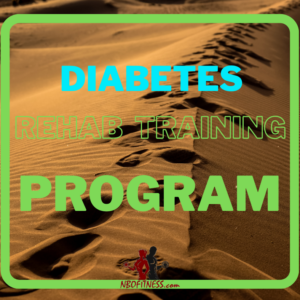
Neonatal jaundice, characterized by yellowing of the skin and eyes in newborns, is a common condition caused by elevated levels of bilirubin in the blood. While neonatal jaundice is often benign, certain maternal factors, including overweight, obesity, poor diet, and lack of exercise, can contribute to its onset.
Reviewed by Evans Mwaniki, PT
Introduction
Neonatal jaundice, characterized by yellowing of the skin and eyes in newborns, is a common condition caused by elevated levels of bilirubin in the blood. While neonatal jaundice is often benign, certain maternal factors, including overweight, obesity, poor diet, and lack of exercise, can contribute to its onset. At Nairobi Fitness Consulting, our team is committed to addressing the underlying causes of neonatal jaundice and providing support to prevent and reverse it.
What is Neonatal Jaundice?
Neonatal jaundice occurs when there is an accumulation of bilirubin, a yellow pigment produced during the breakdown of red blood cells, in the bloodstream. Bilirubin is normally processed by the liver and excreted from the body. However, in newborns, the liver may be immature, leading to difficulty in processing bilirubin efficiently, resulting in its buildup and subsequent jaundice.
Causes of Neonatal Jaundice
While neonatal jaundice can occur for various reasons, maternal factors such as overweight, obesity, poor diet, and lack of exercise can contribute to its development. These factors may influence maternal health and fetal development, predisposing newborns to an increased risk of jaundice. For example, maternal obesity and gestational diabetes can affect placental function and fetal metabolism, potentially leading to elevated bilirubin levels in newborns. While jaundice can occur for various reasons, gestational obesity may contribute to its pathophysiology through several mechanisms:
Placental Dysfunction:
Obesity during pregnancy is associated with alterations in placental structure and function, including increased inflammation, oxidative stress, and impaired nutrient transport. These placental abnormalities can compromise fetal well-being and contribute to conditions such as intrauterine growth restriction (IUGR) and hypoxia, which may increase the risk of neonatal jaundice.
Fetal Programming:
Exposure to maternal obesity in utero can lead to epigenetic changes and alterations in fetal development, including liver function. The liver is responsible for metabolizing and excreting bilirubin, a byproduct of heme breakdown. Disruption of hepatic function due to fetal programming may impair the clearance of bilirubin, leading to elevated levels in the neonatal period and subsequent jaundice.
Hormonal Imbalances:
Obesity is associated with alterations in adipokine and hormone levels, including leptin and insulin, which can influence liver metabolism and bilirubin clearance. Insulin resistance, commonly observed in obese individuals, may impair the uptake of glucose by hepatocytes and affect the conjugation and excretion of bilirubin. Additionally, adipokines such as leptin may modulate hepatic function and contribute to neonatal jaundice.
Breastfeeding Practices:
Breastfeeding is a crucial factor in the management of neonatal jaundice, as breast milk jaundice can occur due to factors present in breast milk that inhibit bilirubin metabolism. Mothers with gestational obesity may be more likely to have delayed lactogenesis or difficulties with breastfeeding initiation and maintenance, leading to inadequate milk intake and prolonged neonatal jaundice.
Signs and Symptoms
Signs of neonatal jaundice include yellowing of the skin and sclera (whites of the eyes), which typically appears within the first few days of life. In severe cases, jaundice may progress to involve the entire body, including the palms and soles. Other symptoms may include poor feeding, lethargy, and difficulty waking the baby.
Management and Prevention
Preventing and managing neonatal jaundice in infants born to mothers with gestational obesity involves a comprehensive approach that addresses maternal health, breastfeeding support, and neonatal care. Prenatal care should focus on optimizing maternal health through weight management, monitoring for gestational diabetes mellitus (GDM), and addressing any underlying metabolic or hormonal imbalances.
Promoting early initiation and successful breastfeeding is essential for ensuring adequate milk intake and preventing breast milk jaundice. Lactation support services, including education, counseling, and assistance with breastfeeding techniques, can help mothers overcome breastfeeding challenges and establish successful breastfeeding practices.
Treatment Options
Treatment for neonatal jaundice depends on the severity of the condition and the underlying cause. Mild jaundice may resolve on its own without intervention, while more severe cases may require phototherapy or exchange transfusion to lower bilirubin levels. It’s essential for newborns with jaundice to receive regular monitoring and appropriate treatment under the guidance of healthcare providers.
How Nairobi Fitness Consulting Can Help
At Nairobi Fitness Consulting, we understand the importance of addressing maternal health and lifestyle factors to prevent and reverse neonatal jaundice. Our multidisciplinary team, including physiotherapists, nutritionists, and psychologists, collaborates to provide comprehensive support to expectant mothers and families.
Exercise Physiotherapy: Our physiotherapists offer customized medical exercise programs tailored to each client’s needs, promoting healthy weight management and physical fitness during pregnancy. Regular exercise can help improve maternal health, reduce the risk of gestational diabetes and obesity-related complications, and support optimal fetal development.
Nutrition Counseling: Our nutritionists provide personalized dietary guidance to expectant mothers, emphasizing the importance of a balanced diet rich in essential nutrients. Nutritional support during pregnancy can help optimize maternal and fetal health, reducing the risk of complications such as gestational diabetes and neonatal jaundice.
Psychological Support: Pregnancy can be a challenging time emotionally, and our psychologists offer counseling and support to expectant mothers and families. Addressing stress, anxiety, and other psychosocial factors can promote overall well-being and contribute to a healthy pregnancy and childbirth experience.
Prevention and Reversal
By addressing maternal health and lifestyle factors, including overweight, obesity, poor diet, and lack of exercise, we can help prevent the onset and reverse neonatal jaundice. Our holistic approach focuses on promoting maternal well-being, optimizing fetal development, and supporting healthy lifestyle choices throughout pregnancy and beyond.
Conclusion
Neonatal jaundice is a common condition in newborns, but certain maternal factors can increase the risk of its development. At Nairobi Fitness Consulting, our team is dedicated to addressing the underlying causes of neonatal jaundice and providing comprehensive support to expectant mothers and families. Through personalized interventions and guidance from our physiotherapists, nutritionists, and psychologists, we empower women to optimize their health and well-being during pregnancy and reduce the risk of neonatal jaundice. Contact us today to learn more about how we can support you on your journey to a healthy pregnancy and childbirth experience.
Our concierge (at home) team of obesomedical personnel; physiotherapists, nutritionists and psychologists, allow you to participate in personalized therapeutic exercises, nutrition and psychological counseling sessions from the comfort of your own home at the time of your choosing, making it convenient for you and your family. Feel free to email us at [email protected] or call us via +254-725-251930 to book an appointment with us at Nairobi Fitness Consulting for your curated and guided prescription and start living your best life.










